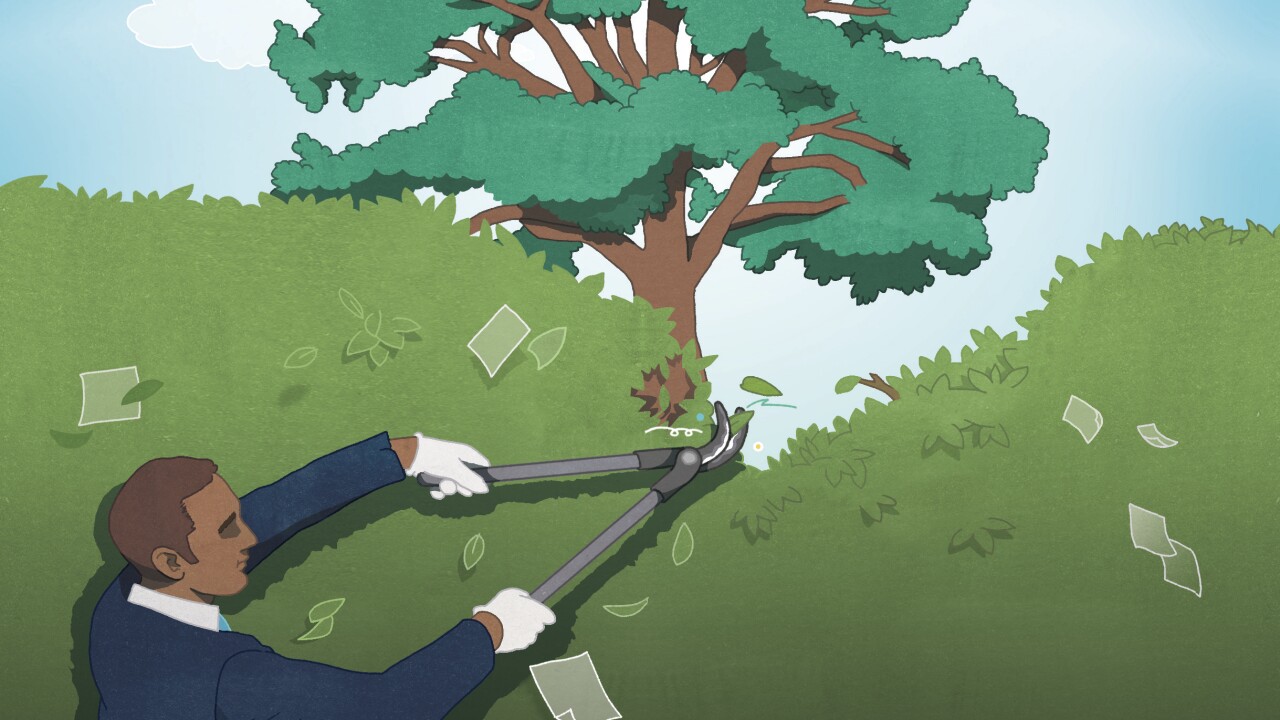Blockchain is one of the hottest topics in the accounting and financial services field, but a substantial amount of uncertainty remains.
While it may have appeared only recently in the public conversation, blockchain reinforces and expands upon existing technological tools and options long available to CPAs and other financial professionals. The American Institute of CPAs has partnered with the Wall Street Blockchain Alliance to educate and inform members of the profession just what blockchain means for the profession and accounting services moving forward.
During a recent AICPA Forensic and Valuation Services webinar, Ron Quaranta, who leads the Wall Street Blockchain Alliance, examined the implications and applications of blockchain in the accounting profession. A common misconception of blockchain technology is that it represents a financial reporting system, a journal entry platform, or an accounting data option, he noted. He highlighted some of the most common questions as CPAs grapple with this new technology.
Three questions that CPAs will inevitably be asked, regardless of whether they are employed in public practice or industry, include the following:
Is blockchain the same thing as bitcoin?
No, bitcoin is an application that runs on blockchain technology, just like different websites and applications run on the TCP/IP infrastructure that runs the internet. Without blockchain technology, the cryptocurrency market and business case would not exist as it currently does in the marketplace.
What does blockchain actually do that is different from existing options?
Blockchain, at its core, is a database operating in the cloud that stores a variety of information, including financial and nonfinancial information. Any information uploaded onto the blockchain network is verified and approved by existing members of the network prior to final approval and addition, and is then distributed to network members in real time. This security, and subsequent encryption of data once it has been approved and added means that data on the blockchain is theoretically secured against data hacks and breaches (although there have been reports of data breaches and hacking activity on cryptocurrency exchanges).
Will blockchain make CPAs obsolete?
A fear among CPAs, and any industry disrupted by a dramatic technological change, is that the implementation of this technology will lead to job displacement and job loss among members of the profession. The AICPA-WSBA webinar addressed some of these concerns.
Automation is not the enemy of CPAs. It is true that automation will result in some job displacement and disruption within the profession, but that is no reason to fear the coming implementation of blockchain technology. As lower-level services, including account reconciliations, bank reconciliations, confirmations, receivables and payables are delegated to a blockchain platform, CPAs are better able to occupy and move into higher-level advisory services. Many CPAs, both individual practitioners and firms, are already moving in this direction; blockchain simply facilitates this transition.
Audit, attest and tax reporting will become more efficient. One of the biggest pain points in the current cycle of accounting and attestation services is the lag that occurs during the review, analysis and reporting process. Audits and other attestation services are among the targets of this criticism, which can be at least partially offset by the real-time nature of how information is communicated via blockchain. In addition to the real-time transference of information and data, since all data is verified and confirmed by interested parties on a continuous basis, the effort required to confirm and report tax related information will be much lower.
Especially during tax season, the implications and applications for blockchain technology on the accounting function and processes on the taxation and valuation processes will become an increasingly hot topic. The AICPA-WSBA webinar addressed these issues, while also highlighting the upside of including blockchain in the taxation and asset valuation/reporting conversation:
Blockchain reduces the opportunity for errors and fraud. A major issue with fraud and attestation reporting is that these transactions and information are possibly influenced by employees working for the organization. Since blockchain requires all information uploaded and included in the blockchain environment to be verified and confirmed by existing members of the network, this reduces the chances that data will be recorded and reported erroneously.
Blockchain makes tax reporting less complicated. Tax reporting, especially in the wake of the tax reform law enacted last December, tends to be an especially fraught time of year for both clients and CPAs, but blockchain can assist with this process. In short, if all of the information is recorded and approved by existing members of the network, tax-related information and data is available for examination and analysis. For CPAs, this means they are able to offer more real time advice and guidance to clients as they negotiate the taxation landscape.
Blockchain is a topic that inspires equal parts fear and excitement among accounting professionals, but it does not have to be something that remains unknown. By leveraging the available resources in the market, including those provided by the AICPA and the WSBA, CPAs and other accounting professionals will be well positioned to thrive in this rapidly changing business environment.






